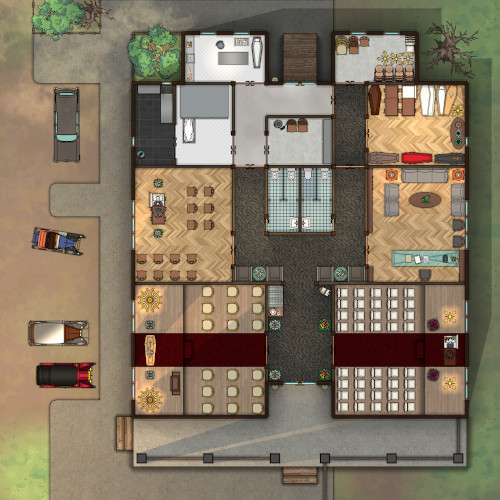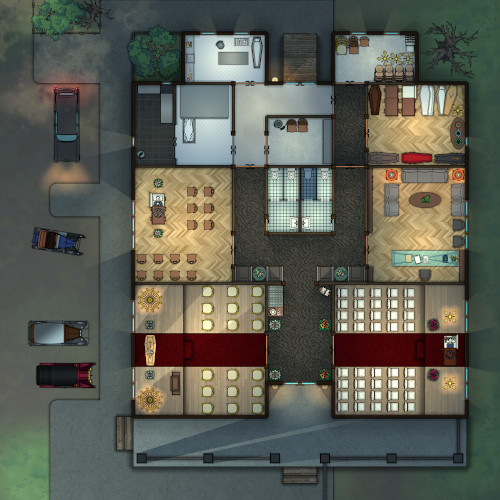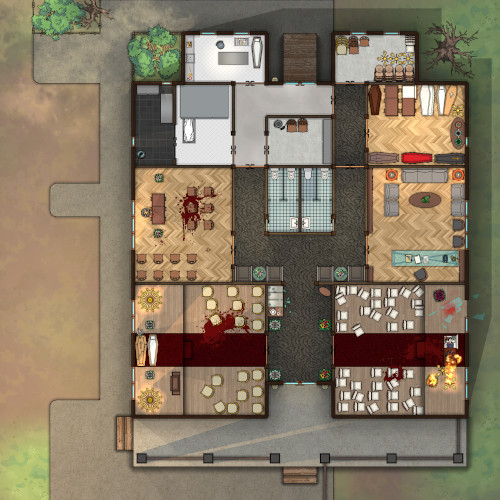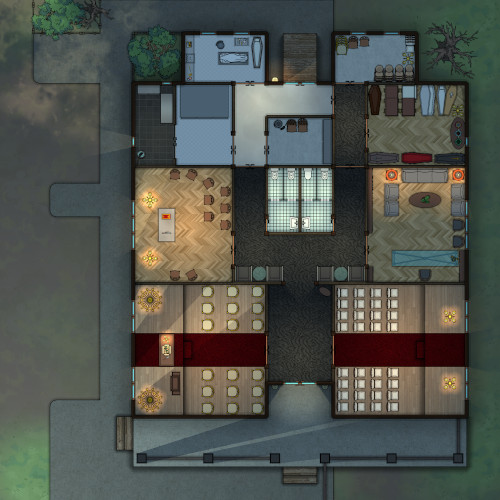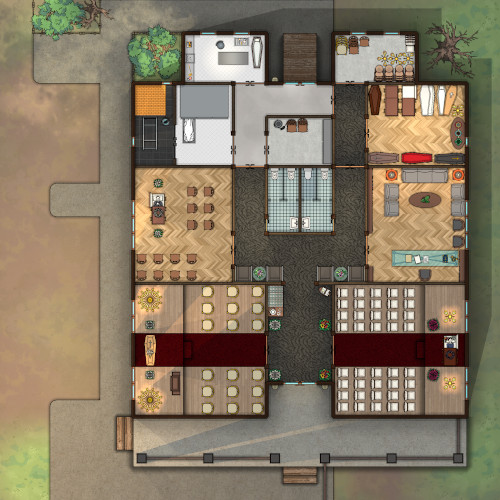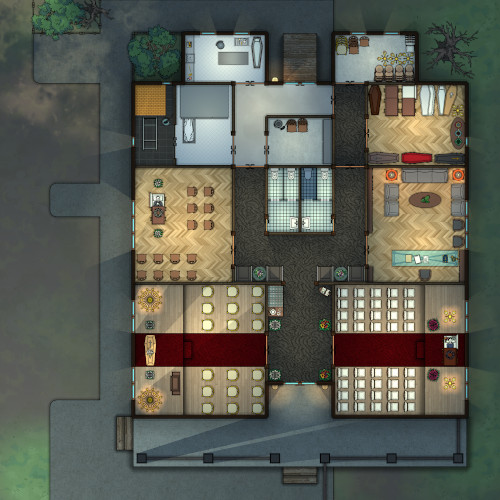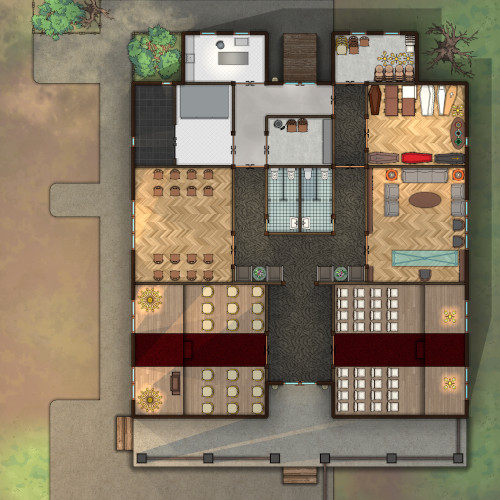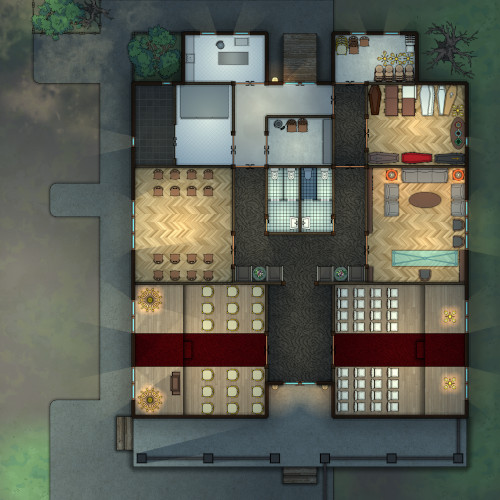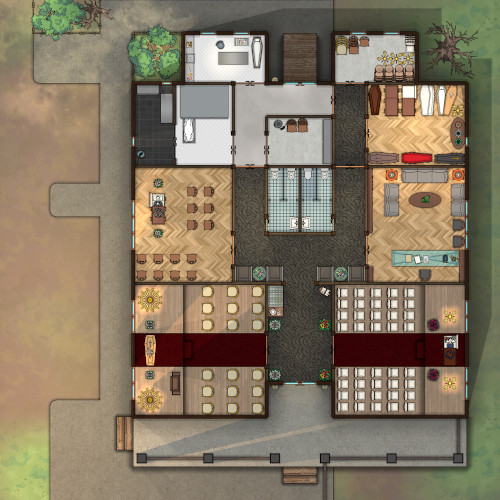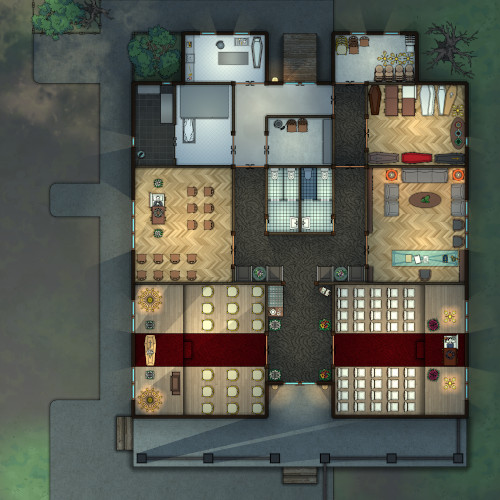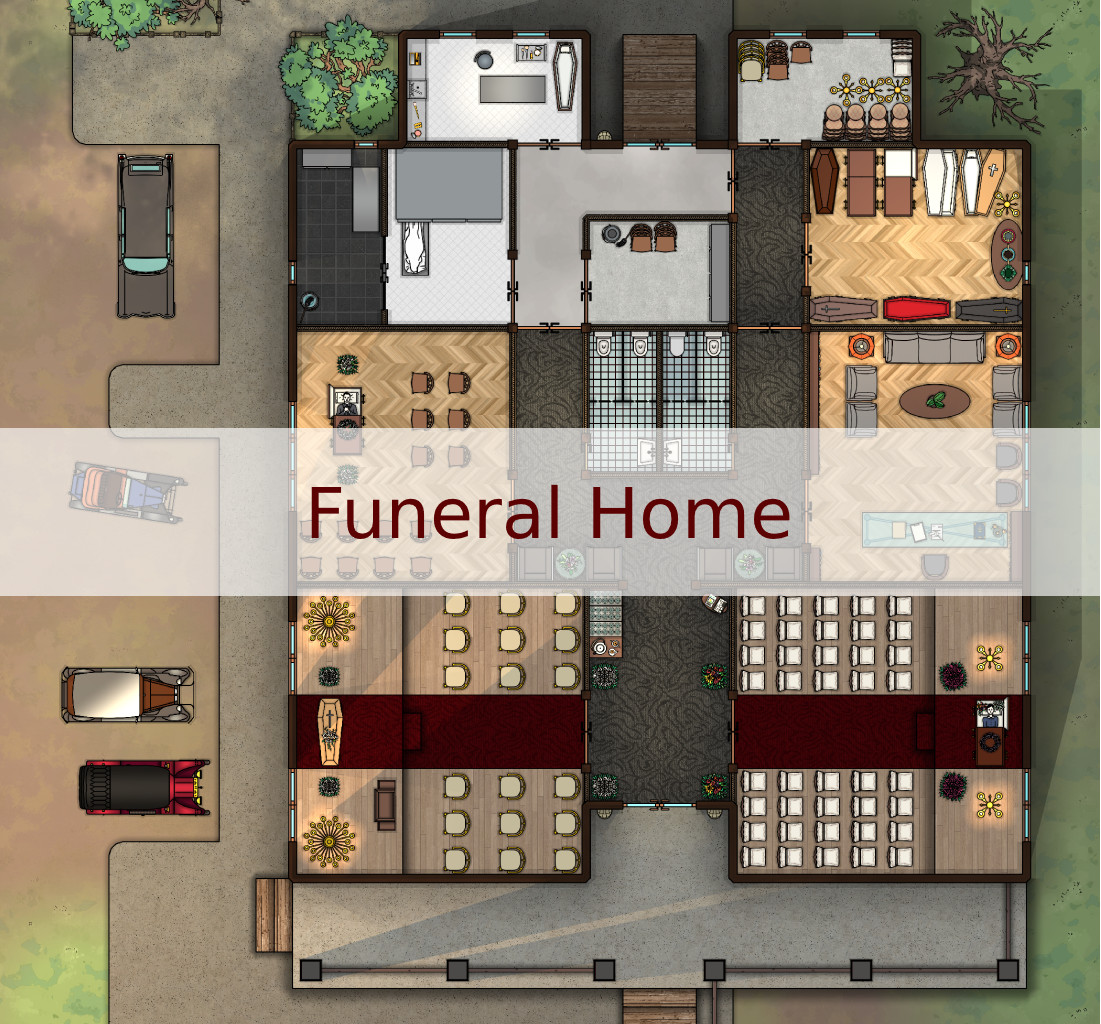Why does the embalming fluid drain upward into vessels that hold nothing? Which mourner still sits in the viewing parlor though the service ended in 1926? What name appears in the guest book written in hands that can no longer hold a pen? And why does the telephone ring with condolences for funerals not yet scheduled?
Follow Cthulhu Architect on BlueSky!I did not attend his funeral, but I sent a nice letter saying I approved of it.
― Mark Twain
The Whitmore Funeral Home had served the town for three generations, its Victorian facade weathered but dignified. Clara had inherited the business from her father, along with his meticulous records and unwavering dedication to honoring the dead. She prided herself on providing comfort to grieving families, ensuring their loved ones looked peaceful in their final rest.
The changes began subtly. Clara first noticed it during the Hendricks funeral---Mrs. Hendricks’ cheeks held more color than they should have after two days of preparation. Clara attributed it to her improved embalming techniques, but something nagged at her professional instincts. The deceased woman’s skin felt warmer than the refrigerated temperature suggested.
By the third week, Clara could no longer deny the pattern. Every body that passed through her care was showing signs of what she could only describe as vitality. Not life---never life---but something that mimicked its appearance. Complexions grew rosier, hair seemed to regain its luster, and most disturbing of all, the bodies required less cosmetic work to appear natural.
The breakthrough came when Clara decided to work late, reviewing her father’s old journals for any mention of similar phenomena. As she read by lamplight in her office adjoining the preparation room, she heard the soft sound of movement. Through the doorway, she watched in frozen terror as Mr. Garrison---scheduled for burial tomorrow---slowly turned his head toward her voice.
The journal entry she’d been reading suddenly made horrible sense. Her father’s cramped handwriting described a “gift” passed down through their family line, an ability to nurture what he called “the space between.” The dead didn’t return to life under their care---they lingered in a state of beautiful preservation, sustained by something ancient that flowed through the funeral home’s foundations.
Clara understood now why their establishment had never lacked for business, why families traveled from neighboring towns specifically for their services. The dead were so lifelike, so peaceful, because they weren’t entirely gone. They remained tethered to this world, fed by whatever power her bloodline had unknowingly served for decades.
As she watched more bodies begin to stir in the dim light, their eyes opening to fix upon her with expressions of gratitude mixed with hunger, Clara realized she faced a choice. She could destroy this legacy, finally releasing the accumulated dead to their proper rest---or embrace her inheritance and discover what other services the truly desperate might pay for.
